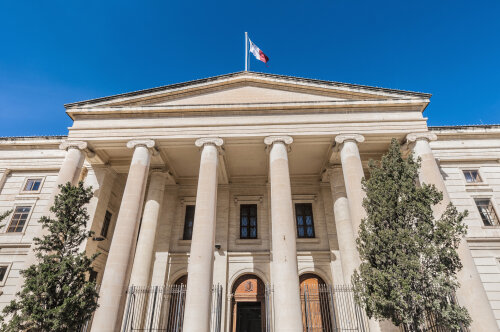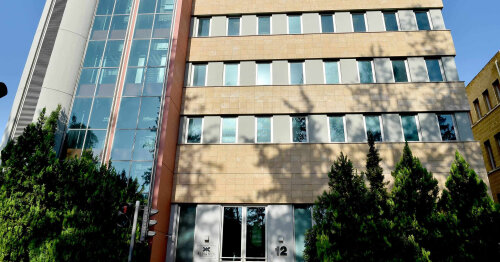Best Restructuring & Insolvency Lawyers in Birkirkara
Share your needs with us, get contacted by law firms.
Free. Takes 2 min.
List of the best lawyers in Birkirkara, Malta
About Restructuring & Insolvency Law in Birkirkara, Malta
Restructuring and insolvency law governs the processes and legal frameworks for companies or individuals who are unable to meet their financial obligations in Malta, including Birkirkara. Birkirkara, being one of Malta's largest commercial hubs, sees frequent application of these laws among businesses of all sizes. The aim of restructuring is to help financially distressed businesses reorganize and continue operating, while insolvency proceedings are focused on distributing a debtor's assets among creditors if rescue is not possible. Malta's legal framework, in line with European Union standards, offers a range of mechanisms to support both debtors and creditors in resolving financial difficulties.
Why You May Need a Lawyer
There are several situations in which individuals or businesses in Birkirkara may need legal advice for restructuring or insolvency. Some common scenarios include:
- Facing mounting debts and creditor pressure
- Receiving statutory demands or winding-up petitions
- Experiencing cash flow or liquidity problems
- Needing to negotiate with creditors for revised repayment terms
- Exploring voluntary arrangements, such as company restructuring or individual composition agreements
- Navigating bankruptcy or liquidation proceedings
- Dealing with cross-border insolvency issues
- Protecting personal assets and understanding legal responsibilities as a company director
An experienced lawyer can assess your situation, propose the most suitable solutions, represent you in negotiations, and ensure compliance with complex local regulations.
Local Laws Overview
Restructuring and insolvency in Birkirkara, Malta, are primarily governed by the Companies Act (Cap. 386 of the Laws of Malta), which includes specific provisions for company recovery, re-organization, and dissolution. For individuals, the Commercial Code and Civil Code also contain relevant regulations. Key points include:
- Company Recovery Procedure: Allows companies facing financial difficulty to appoint a special controller and attempt recovery under court supervision before liquidation is considered.
- Voluntary Arrangements: Both companies and individuals can propose agreements to repay debts over time, subject to creditor approval and court sanction.
- Liquidation: Can be voluntary (initiated by company members) or involuntary (ordered by the court, often at the request of creditors).
- Bankruptcy: Applies to traders and professionals who cannot meet their debts, resulting in liquidation and asset distribution.
- Duties of Directors: Directors must act in the best interest of creditors when insolvency threatens and avoid actions that worsen the company’s position.
- Creditor Rights: Creditors have the right to participate in meetings, vote on arrangements, and claim assets during insolvency proceedings.
Court procedures in Malta are designed to ensure fairness to both debtors and creditors, with strict deadlines and documentation requirements.
Frequently Asked Questions
What is the difference between restructuring and insolvency?
Restructuring involves reorganizing a company's financial structure to avoid insolvency and keep the business running, while insolvency refers to the legal process where a company or individual cannot pay debts as they fall due, often leading to asset liquidation.
What are the first signs that my business may need restructuring?
Warning signs include difficulty paying suppliers and employees, frequent delays in meeting payment deadlines, creditor lawsuits, and declining revenue or cash flow.
What happens during a company recovery procedure in Malta?
A company in financial trouble can apply to the court for a recovery procedure, which, if granted, appoints a special controller to manage the business, protect assets, and create a recovery plan while halting most legal actions against the company.
Can individuals declare bankruptcy in Malta?
Yes, individuals who are traders or professionals can be declared bankrupt through court proceedings if they are unable to pay their debts. Non-traders have different remedies available under civil law.
How long does insolvency or liquidation take in Birkirkara, Malta?
The timeframe varies depending on the complexity of the case, asset size, and legal challenges. Simple liquidations can take several months, while complex cases may last over a year.
Do company directors have personal liability for company debts?
Directors are generally not personally liable unless they have acted negligently, unlawfully, or in breach of their statutory duties, particularly in the period leading up to insolvency.
Are all creditors treated equally in insolvency proceedings?
No, Maltese law establishes an order of priority. Secured creditors typically get paid before unsecured creditors, and certain debts such as employee wages and taxes may have preferential status.
Can I negotiate with my creditors before filing for insolvency?
Yes, negotiation or mediation can often resolve issues without resorting to formal insolvency. A lawyer can assist in structuring agreements that are acceptable for both parties and legally binding.
What documentation is needed for insolvency or restructuring processes?
Typically, you should provide up-to-date financial statements, lists of assets and liabilities, creditor details, contracts, and any relevant correspondence regarding debts or legal actions.
Will insolvency affect my business operations in the future?
Insolvency may impact your ability to trade, access credit, and direct companies in the future, depending on the outcome and any court-imposed restrictions. Restructuring can help businesses survive and may have less reputational damage.
Additional Resources
If you need more information or assistance regarding restructuring and insolvency, the following resources may be helpful:
- The Registry of Companies - responsible for company filings and public records
- Maltese Courts of Justice - where insolvency proceedings are filed and managed
- The Malta Financial Services Authority (MFSA) - oversees financial regulations affecting businesses
- The Chamber of Advocates - association of qualified legal practitioners
- Local business support centers offering guidance for struggling enterprises
Engaging with these organizations, alone or alongside professional legal advice, can help you understand your obligations and rights.
Next Steps
If you believe you may require help with restructuring or insolvency in Birkirkara, Malta, consider the following steps:
- Organize all financial records and relevant documents
- Make a list of outstanding debts, obligations, and assets
- Reach out to a lawyer experienced in Maltese restructuring and insolvency law for an initial consultation
- Ask about all available legal options, the potential costs, and implications of each path
- Act promptly - delays or ignoring creditor action can reduce your available options
Professional legal guidance ensures that you fully understand your position and can make informed decisions to protect your interests and, where possible, achieve the most favorable outcome.
Lawzana helps you find the best lawyers and law firms in Birkirkara through a curated and pre-screened list of qualified legal professionals. Our platform offers rankings and detailed profiles of attorneys and law firms, allowing you to compare based on practice areas, including Restructuring & Insolvency, experience, and client feedback.
Each profile includes a description of the firm's areas of practice, client reviews, team members and partners, year of establishment, spoken languages, office locations, contact information, social media presence, and any published articles or resources. Most firms on our platform speak English and are experienced in both local and international legal matters.
Get a quote from top-rated law firms in Birkirkara, Malta — quickly, securely, and without unnecessary hassle.
Disclaimer:
The information provided on this page is for general informational purposes only and does not constitute legal advice. While we strive to ensure the accuracy and relevance of the content, legal information may change over time, and interpretations of the law can vary. You should always consult with a qualified legal professional for advice specific to your situation.
We disclaim all liability for actions taken or not taken based on the content of this page. If you believe any information is incorrect or outdated, please contact us, and we will review and update it where appropriate.















